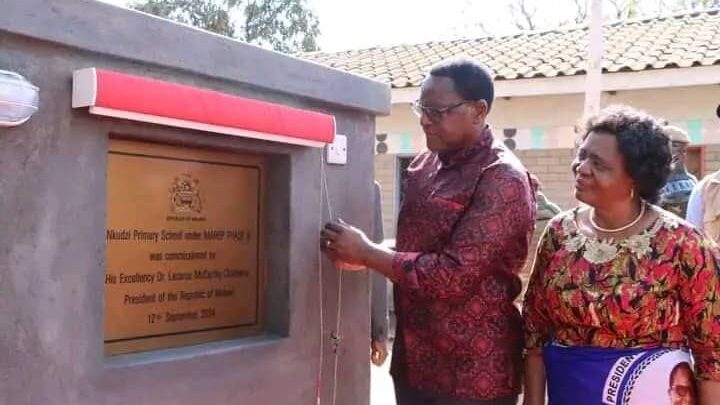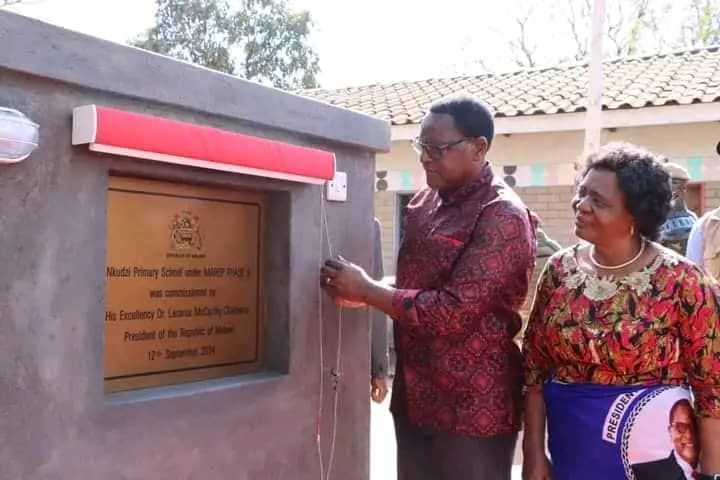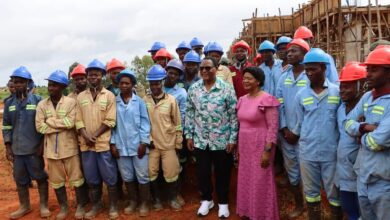News
President Chakwera Launches Power Supply Under MAREP 9 in Chikwawa

By Burnett Munthali
On Thursday, President Dr. Lazarus Chakwera symbolically switched on the power supply at Nkudzi Primary School in Chikwawa, marking a significant milestone under the Malawi Rural Electrification Program (MAREP) Phase 9. The initiative is part of the government’s broader strategy to expand access to electricity in rural areas and promote socio-economic development.
Speaking at the event, Minister of Energy Ibrahim Matola emphasized the critical role of energy in driving economic growth and improving livelihoods. “Energy is the driver of the economy and an enabler of development,” Matola said, highlighting the transformative impact that electrification can have on local communities.

Matola also underscored the benefits of electricity for education in the area. With power now available, students will have the opportunity to study at night, which is expected to enhance educational outcomes. “This will greatly improve learners’ performance,” he said.
In addition to educational benefits, the minister noted that access to electricity would bring essential services closer to the people. “Maize mills will now be more accessible within the community, reducing the long distances people previously had to travel,” added Matola.
Senior Chief Maseya echoed these sentiments, praising the electrification efforts. “Where there is electricity, development follows. I’m confident that this power supply will bring more growth and significantly improve the quality of life for our people,” he said.
The MAREP 9 program in Chikwawa covers 19 sites, with nine of them already connected to the national grid. This initiative is part of the government’s ongoing efforts to bring electricity to rural areas, fostering economic development, and helping to alleviate poverty.
The event highlights the continued commitment of the Chakwera administration to improving infrastructure and bringing about long-term growth in Malawi’s rural communities.






